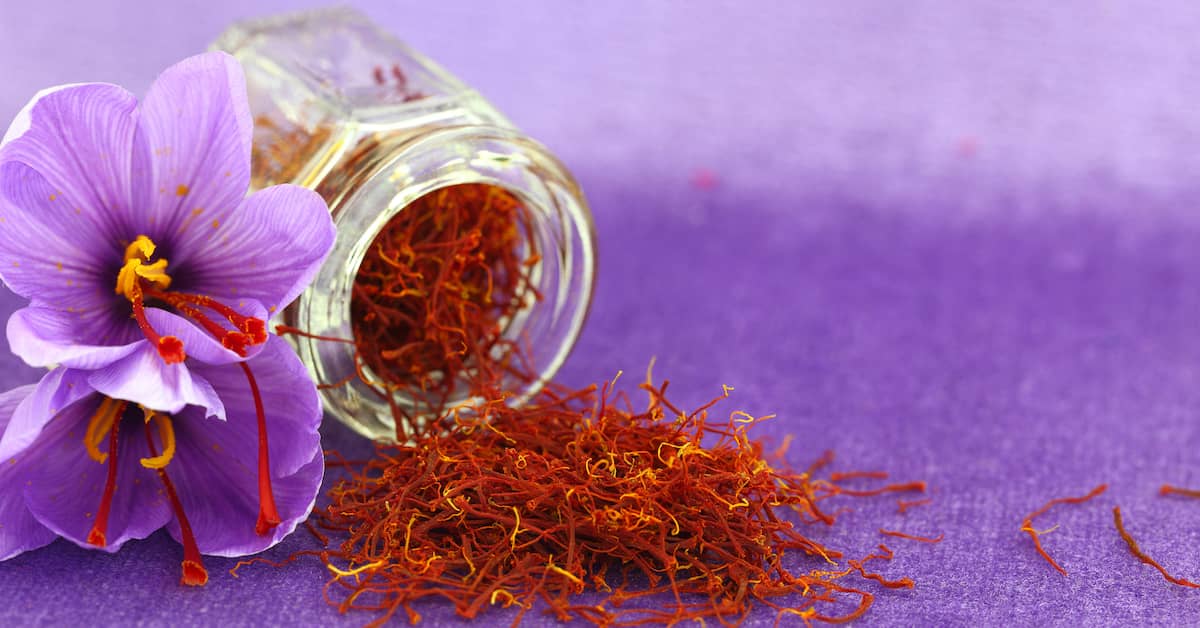
Helps People With Alzheimer’s
According to a randomized, year-long study in Greece, saffron can make significant improvements in the mental capacity of people with Alzheimer's disease.2 And other studies have had similar results – a 22-week study in the Middle East also showed that it could help people with mild-to-moderate Alzheimer's with their everyday mental tasks.3 There's no doubt that some of these effects are linked to saffron's antioxidant properties. An analysis of the natural chemicals in saffron performed in Italy demonstrates that all parts of the saffron plant – the petals, stamens and flowers – contain a wide variety of compounds that can help fend off oxidative harm.4Keeping The Brain Protected
One particularly helpful natural chemical in saffron is crocin. Crocin is a pigment that provides a bit of a red tinge to saffron. It is classifed as one of the carotenoids, a family of phytochemicals well-known for their bright colors and antioxidant powers. While research has not precisely explained how crocin and the other compounds in saffron work, laboratory studies around the world show that crocin can:- Protect the myelin sheaths that cover neurons: Myelin is the insulation around neurons and other nerve tissue that helps electrical impulses travel faster and more efficiently. A study in Canada shows that crocin may be able to help fight against the inflammation and destruction of myelin in the brain that leads to multiple sclerosis.5
- Reduce inflammation in the brain: A review study by rearchers in Europe and the Middle East shows that crocin helps lower damaging inflammation in brain tissue and may also aid in easing chronic pain. In addition, they found evidence it can fight oxidative stress and can suppress inflammation in the heart, lungs and kidneys.6
- Limit neuron damage from brain trauma: A laboratory study in Asia shows that crocin could be an effective therapy for treating concussions and other traumatic brain injuries.7
Helping The Brain Help Itself
Researchers are also finding that saffron provides a beneficial kind of molecular stress to the brain that stimulates its innate defenses against inflammation and neuron damage. This stress is a type of epigenetic influence that activates genetic activity that sends out cell-to-cell signals. The technical name for this effect is "hormetic stimulus." It is similar to the health-promoting effects of exercise. In the case of intense physical activity, you temporarily stress the body in a way that doesn't harm it in the long run but promotes more fitness. And when the natural compounds in saffron stress brain tissue, it supports increased antioxidant activity by brain cells. As researchers at the University of Sydney in Australia explain, saffron, along with being "one of the richest sources of antioxidants known to science," possesses the ability to get neurons "to up-regulate their endogenous antioxidative systems."8 It's no wonder saffron has been used for medicinal purposes ever since humans first looked to plants for their healing powers.My Takeaway
It’s not a bad idea to have saffron in your kitchen and use it for spicing up your meals. It's pretty easy to add a small amount of saffron to many different dishes. It's often used in rice and mushroom recipes and is added to Middle Eastern and Indian foods. It's a healthy choice that delights both taste buds and the brain. The only drawback? Saffron is usually more expensive than other spices such as ginger or basil. If you’re not interested in cooking with saffron, supplements are available. If you choose to take a supplement, be aware that saffron extracts may interact with diabetic medications, blood pressure drugs and sedatives. So, talk with your healthcare provider if you’re on any sort of medication. Saffron supplements may also interfere with the break down of caffeine in the body and could prolong the effects of caffeine in some people.- https://www.cs.mcgill.ca/~rwest/wikispeedia/wpcd/wp/h/History_of_saffron.htm#:~:text= Saffron was used by ancient,curative for bouts of melancholy.
- https://pubmed.ncbi.nlm.nih.gov/27472878/
- https://pubmed.ncbi.nlm.nih.gov/19838862/
- https://pubmed.ncbi.nlm.nih.gov/22809329/
- https://pubmed.ncbi.nlm.nih.gov/21964030/
- https://pubmed.ncbi.nlm.nih.gov/32640351/
- https://pubmed.ncbi.nlm.nih.gov/17274961/
- https://onlinelibrary.wiley.com/doi/10.1111/jnc.13857
